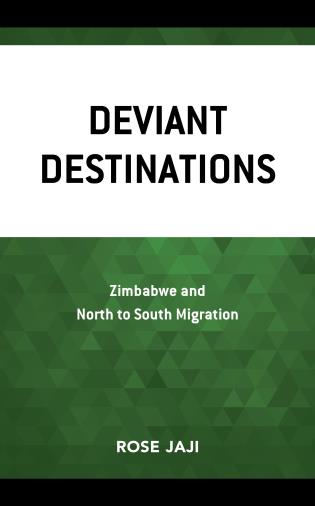New writing on migration and mobilities – an MMB special series
By Rose Jaji.
The migration lexicon has consolidated itself around an either/or rather than both-and schematic in which categories resulting from a binary classification of regions and countries have acquired unquestioned normativity. This normativity is evident in what can be termed a regionalised division of migration labour. Binary classifications portray mobile people and the spaces involved in their mobility in mutually exclusive terms, exemplified by the classification of countries as either sending or receiving rather than as both sending and receiving. This occurs in a broader context in which the global South is depicted as the antithesis of the global North. A predictable outcome of this is the alignment of motivations for migration with regions of origin and destination, which can be seen in the dubious and regionalised distinction between expatriates and economic migrants. This reflection is based on my research on migration from the global North to Zimbabwe.
The bifurcated migration lexicon has a blind spot for trend-defying trajectories towards destinations that do not conform to the conventional destination profile built around economic and political stability, high ranking on global economic, development and governance indices and high ranking on the Global Passport Power Rank. When trained on countries that conform to this profile, the migration studies lens zooms in on conspicuous immigration from which these countries acquire the label ‘receiving countries’ in the classificatory binary. This renders invisible non-conforming destinations that are unquestioningly named as sending countries because they are associated with economic decline, political instability, low ranking on global indices, low positions on the Global Passport Power Rank and visible emigration that often contributes to terms such as ‘exodus’, ‘flood’ and ‘influx’.
The bifurcated migration lexicon is apparent in the way in which different motivations are attributed to North-South and South-North trajectories, which is due to perception of the regions as antithetical and lacking in internal heterogeneity. This conceals internal contradictions and leads to regions being aligned with specific drivers of migration along with a corresponding regionalisation of verbs and nouns in the migration vocabulary. As a result, people moving to the global North are identified as economic migrants and asylum seekers/refugees while those moving to the global South are named expatriates and lifestyle migrants. The hostility experienced by the former comes from their depiction as beneficiaries who arrive to receive and earn. In contrast, the hospitality extended to the latter derives from their portrayal as benefactors who arrive to help and spend. The South-North trajectory is accordingly depicted as involving migration (needed but unwelcome) whereas the North-South trajectory is presumed to comprise mobility (wanted and welcome) (Anderson 2017; Castles 2010; Faist 2013). Mobile people supposedly move because of desire and choice while those who migrate seemingly do so out of compulsion, which gives their movement a tragic aspect. This feeds into the subtle but evocative distinction between travelling and fleeing as well as into the invisibility of travelers compared with the conspicuousness of economic migrants and refugees. The term travelling comes to embody self-sufficiency and the norm while flight becomes the anatomy of helplessness, the anomalous and even dangerous (Jaji 2020).
The dichotomous naming of mobilities based on their trajectories and presumed motivations leads to different mobility opportunities, which are considered more desirable or less so depending on how the mobile people and the places they come from are categorised. This is symbolised by how passports function as nationalised and politicised text inscribed on mobile people’s bodies (Jaji 2020). Passport rankings determine elevation of social status (Pogonyi 2018) or demotion depending on how the passport is ranked. Differential naming of mobile people creates varying opportunities for inclusion in the global economy; favourable immigration policies are created for highly skilled migrants while low-skilled migrants and refugees encounter exclusionary policies (Castles 2013).
The binary classifications that constitute the migration lexicon obscure migration trajectories and motivations that transgress the normative or orthodox. This transgression is exemplified by migration from the global North to Zimbabwe, a country that appears in migration studies as a homogenised sending country. However, Zimbabwe defies dominant narratives by straddling boundaries between the sending, receiving and transit categories. As a destination country for North-South migration, Zimbabwe demonstrates that the normative and conventional can be found in the aberrant; the periphery is not necessarily without a core. The country also blends the diverse and contradictory, thus transgressing the either/or and projecting the both-and schematic.
Zimbabwe, a country with low rankings on GDP, IHDI, Governance and Human Security indices, projects the hallmarks of a sending country at the same time as it deviates from the linear and unidirectional migration of the sending-receiving country binary. As a sending, receiving and transit country, it defies essentialist categorisation of countries through occupying a non-binary space. It also challenges bifurcated labelling of mobile people as either economic migrants or asylum seekers/refugees because it generates mixed migration (Crush, Chikanda and Tawodzera 2015). As a country in dire straits offering opportunities for upward social mobility to migrants from affluent parts of the world, the country shakes the stability and consistency with which the nation-state framework conceptualises migration, space and trajectories thus illustrating the limitations of using the nation-state as a framework for studying and understanding migration.
Trend-defying trajectories warrant a review of the bifurcated migration lexicon, which renders such mobilities obscure and trivial. They call for critical reflection on the nation-state’s reductionist conceptualisation, categorisation and interpretation of contemporary human mobility. Trend-defying trajectories towards a boundary-transgressing destination demonstrate the mutual mediation of the nation-state and individual motivations evident in transnational activities. They challenge reductionist tendencies inherent in essentialist binary categorisations. This calls for a nuanced conversation that addresses commonalities in motivations that cut across the North-South and sending-receiving divides. Categories need to emerge from inherent aspects of mobilities rather than artificial differences engendered by regionalised power relations.


